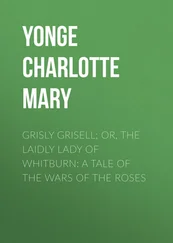John Edgar - The Wars of the Roses
Здесь есть возможность читать онлайн «John Edgar - The Wars of the Roses» — ознакомительный отрывок электронной книги совершенно бесплатно, а после прочтения отрывка купить полную версию. В некоторых случаях можно слушать аудио, скачать через торрент в формате fb2 и присутствует краткое содержание. Жанр: foreign_antique, foreign_prose, на английском языке. Описание произведения, (предисловие) а так же отзывы посетителей доступны на портале библиотеки ЛибКат.
- Название:The Wars of the Roses
- Автор:
- Жанр:
- Год:неизвестен
- ISBN:нет данных
- Рейтинг книги:3 / 5. Голосов: 1
-
Избранное:Добавить в избранное
- Отзывы:
-
Ваша оценка:
- 60
- 1
- 2
- 3
- 4
- 5
The Wars of the Roses: краткое содержание, описание и аннотация
Предлагаем к чтению аннотацию, описание, краткое содержание или предисловие (зависит от того, что написал сам автор книги «The Wars of the Roses»). Если вы не нашли необходимую информацию о книге — напишите в комментариях, мы постараемся отыскать её.
The Wars of the Roses — читать онлайн ознакомительный отрывок
Ниже представлен текст книги, разбитый по страницам. Система сохранения места последней прочитанной страницы, позволяет с удобством читать онлайн бесплатно книгу «The Wars of the Roses», без необходимости каждый раз заново искать на чём Вы остановились. Поставьте закладку, и сможете в любой момент перейти на страницу, на которой закончили чтение.
Интервал:
Закладка:
The Earl of Salisbury soon found that his success was calculated to convert neutrals into allies. Lord Stanley, on receiving the queen's message, had gathered a force of two thousand men; but, being reluctant to commit himself on either side, he contrived, on the day of battle, to be six miles from the scene of action. On hearing of the result, however, he sent a congratulatory letter to his father-in-law; and Salisbury, showing the epistle to Sir John Harrington, and others of his knights, said, jocosely, "Sirs, be merry, for we have yet more friends."
The contest between York and Lancaster now assumed a new aspect. Salisbury, rejoicing in a victory so complete as that of Bloreheath, formed a junction with York at Ludlow; and the duke, perceiving that moderation had been of so little avail, and believing that his life would be in danger so long as Margaret of Anjou ruled England, resolved henceforth upon pursuing a bolder course. He could not help remembering that he was turned of forty, an age at which, as the poet tells us, there is no dallying with life; and he began to consider that the time had arrived to claim the crown which was his by hereditary right.
Having resolved no longer, by timidity in politics, to play the game of his enemies, York set up his standard and summoned his friends to Ludlow. Fighting men came from various parts of England, and assembled cheerily and in good order at the rendezvous; while, to take part in the civil war, Warwick brought from Calais those veterans who, in other days, had signalized their valor against foreign foes. The projects of the Yorkists seemed to flourish. Salisbury's experience, knowledge, and military skill were doubtless of great service to his friends; and having thrown up intrenchments, and disposed in battery a number of bombards and cannon, they confidently awaited the enemy.
Meanwhile, the Lancastrians were by no means in despair. The king, having, with the aid of the young Dukes of Somerset and Exeter, drawn together a mighty army at Worcester, sent the Bishop of Salisbury to promise the Yorkists a general pardon if they would lay down their arms. The Yorkists, however, had learned by severe experience what the king's promises were worth, and received the bishop like men who were no longer to be deluded. "So long," said they, "as the queen has supreme power, we have no faith in the king's pardon; but," they added, "could we have assurance of safety, we should express our loyalty, and humbly render ourselves at the king's service."
The king, having received the answer of the insurgent chiefs, advanced on the 13th of October to the Yorkist camp, and made proclamation, that whoever abandoned the duke should have the royal pardon. Though this appeared to be without effect, the king's army did not commence the attack. Indeed, the Yorkist ranks were most imposing, and the duke's guns wrought considerable havoc in the Lancastrian lines. Observing the formidable attitude of his foes, the king resolved to delay the assault until the morrow; and, ere the sun again shone, an unexpected incident had changed the face of matters, and thrown the Yorkists into utter confusion.
Among those who heard the king's proclamation was Andrew Trollope, captain of the veterans whom Warwick had brought from Calais. This mighty man-at-arms had served long in the French wars, and cared not to draw his sword against the son of the Conqueror of Agincourt. After listening to the king's offers of pardon, and considering the consequences of refusing them, Trollope resolved upon deserting; and, at dead of night, he quietly carried off the Calais troops, and making for the royal camp, revealed the whole of York's plans.
When morning dawned, and Trollope's treachery was discovered, the adherents of the White Rose were in dismay and consternation. Every man became suspicious of his neighbor; and the duke was driven to the conclusion that he must submit to circumstances. No prospect of safety appearing but in flight, York, with his second son, the ill-fated Earl of Rutland, departed into Wales, and thence went to Ireland; while Salisbury and Warwick, with the duke's eldest son, Edward, escaped to Devonshire, bought a ship at Exmouth, sailed to Guernsey, and then passed over to Calais.
The king, on finding that his enemies had fled, became very bold; and having spoiled the town and castle of Ludlow, and taken the Duchess of York prisoner, he called a Parliament. As measures were to be taken to extinguish the Yorkists, no temporal peer, unless known as a stanch adherent of the Red Rose, received a summons; and Coventry was selected as the scene of revenge; for, since the unfortunate result of the Commission at Guildhall, the queen looked upon London as no place for the execution of those projects on which she had set her heart. Away from the metropolis, however, Margaret found herself in a position to do as she pleased; and at Coventry Bloreheath was fearfully avenged. With little regard to law, and still less regard to prudence, the most violent courses were pursued: York, Salisbury, Warwick, and their friends, were declared traitors; and their estates, being confiscated, were bestowed on the queen's favorites. The chiefs of the White Rose appeared utterly ruined; and England was once more at the feet of "The Foreign Woman."
CHAPTER X
THE BATTLE OF NORTHAMPTON
In the month of June, 1460, while the Duke of York was in Ireland, while Margaret of Anjou was with her feeble husband at Coventry, and while Henry Holland, Duke of Exeter, York's son-in-law, was, as lord high admiral, guarding the Channel with a strong fleet, Richard Neville, Earl of Warwick, sailed from Calais for the shores of England. It was in vain that Exeter endeavored to do his duty as admiral; for on the sea as on the land, "The Stout Earl" was a favorite hero, and the sailors refused to haul an anchor or hoist a sail to prevent his landing. At Sandwich he safely set foot on English ground, and prepared to strike a shattering blow at the house of Lancaster.
Warwick was accompanied by the Earl of Salisbury and the Earl of March; but the army with which he came to change the dynasty did not consist of more than fifteen hundred men. The earl, however, was not dismayed at the weakness of his force. Indeed, his own great name was a tower of strength; and when, on landing, he proclaimed that his motive for taking up arms was to deliver his countrymen from oppression, and to maintain the ancient laws and liberties of England, he knew that the people would rally around his banner. Ere this, the White Rose, in addition to being the emblem of hereditary right, had become identified with the cause of civil and religious freedom.
The earl's confidence in the people of England was not misplaced. As he marched toward London, the fighting men of Kent and of all the south flocked to his standard, and on reaching Blackheath he was at the head of thirty thousand men. As the patrician hero entered the capital he was hailed with enthusiasm, and cheered with the hope of crowning his enterprise with success.
The king and queen were still at Coventry when informed of Warwick's landing, and Margaret lost no time in taking measures to resist the Yorkist invasion. Money was borrowed from the Lancastrian clergy and nobles, and troops, under Percies, Staffords, Beauforts, Talbots, and Beaumonts, gathered rapidly to the royal standard. The respect which, on his heroic father's account, people still entertained for Henry, and the fear with which Margaret inspired them, were powerful motives; and a great army having been assembled, the Lancastrian king and his haughty spouse, accompanied by Somerset and Buckingham, removed to Northampton, and took up their quarters in the Friary.
Meanwhile, leaving his father in London to defend the city and besiege the Tower, still held for the king by Lord Scales, Warwick marched through the midland counties. Having taken up a position between Towcester and Northampton, he sent the Bishop of Salisbury to the king with pacific overtures. The bishop returned without satisfaction, and Warwick, having thrice ineffectually attempted to obtain an audience of the king, gave the Lancastrians notice to prepare for battle.
Читать дальшеИнтервал:
Закладка:
Похожие книги на «The Wars of the Roses»
Представляем Вашему вниманию похожие книги на «The Wars of the Roses» списком для выбора. Мы отобрали схожую по названию и смыслу литературу в надежде предоставить читателям больше вариантов отыскать новые, интересные, ещё непрочитанные произведения.
Обсуждение, отзывы о книге «The Wars of the Roses» и просто собственные мнения читателей. Оставьте ваши комментарии, напишите, что Вы думаете о произведении, его смысле или главных героях. Укажите что конкретно понравилось, а что нет, и почему Вы так считаете.












